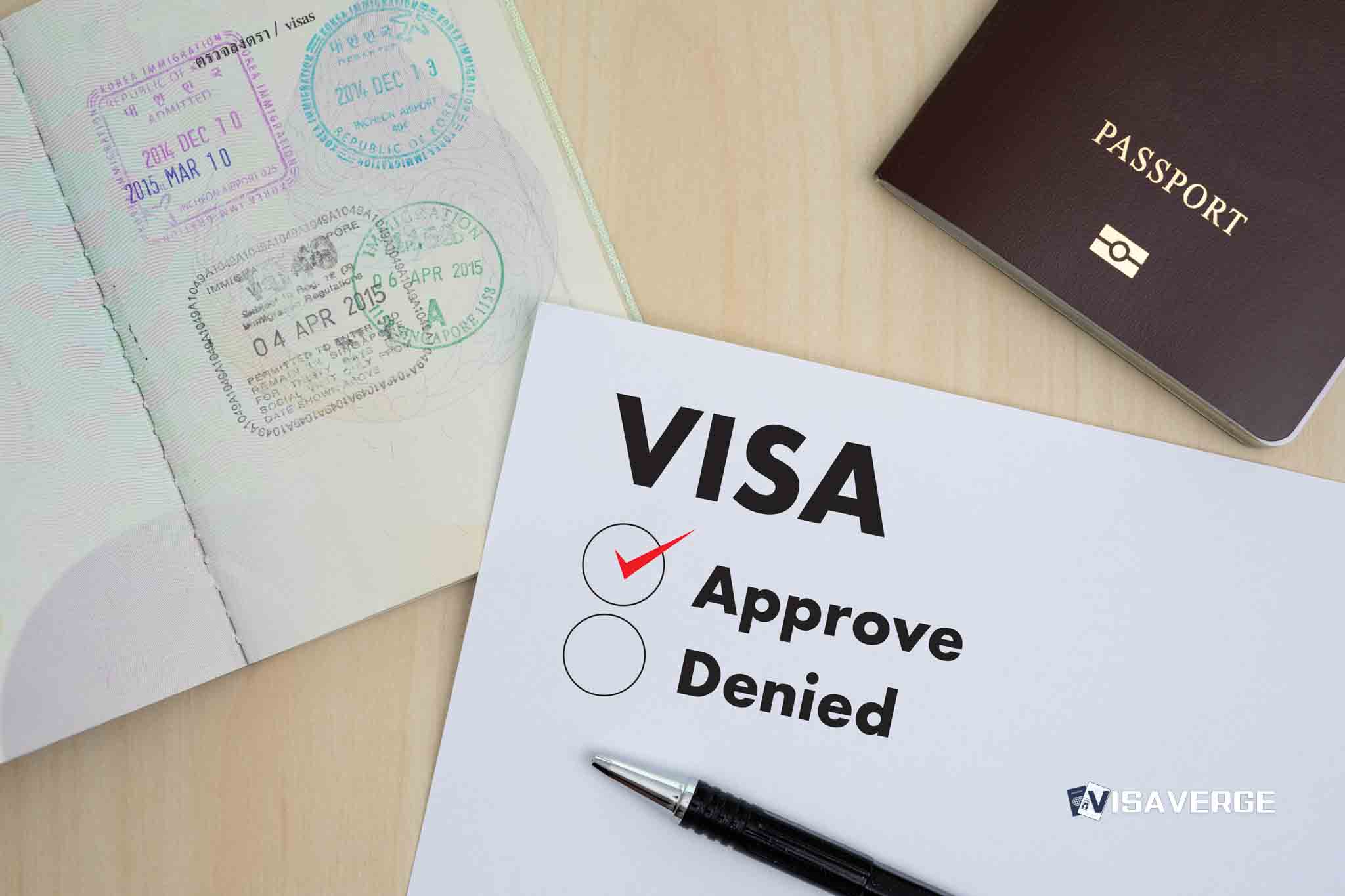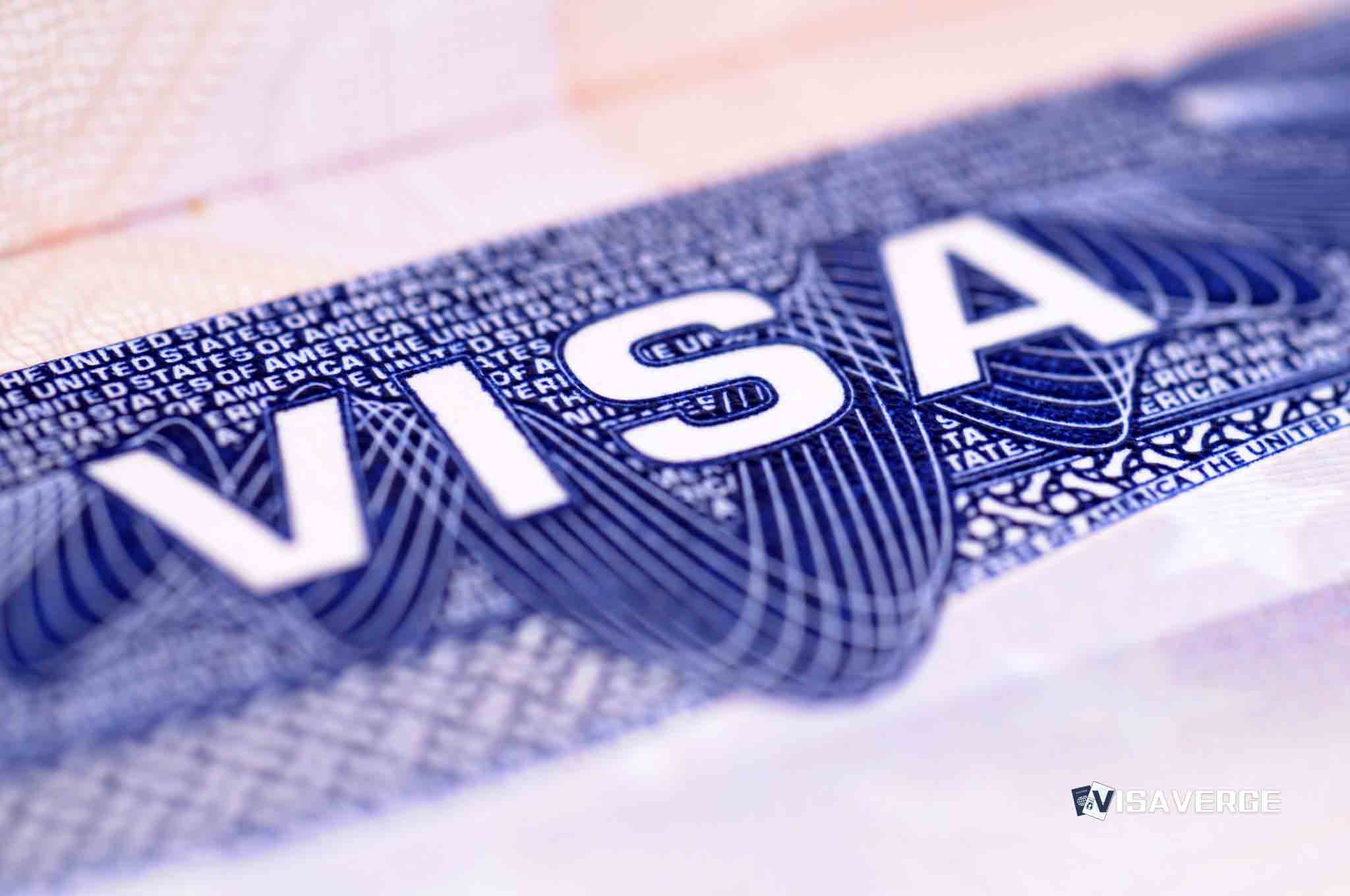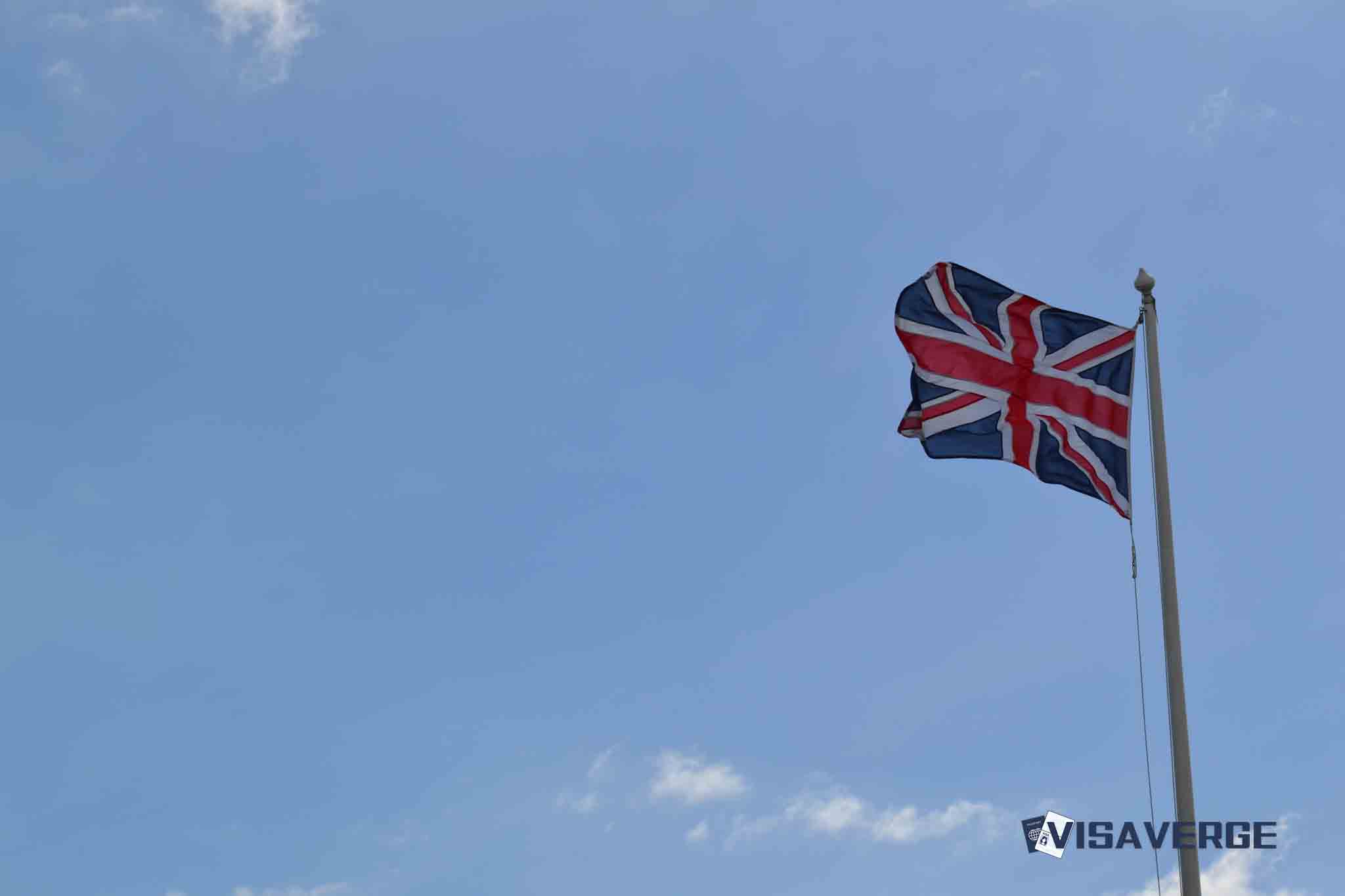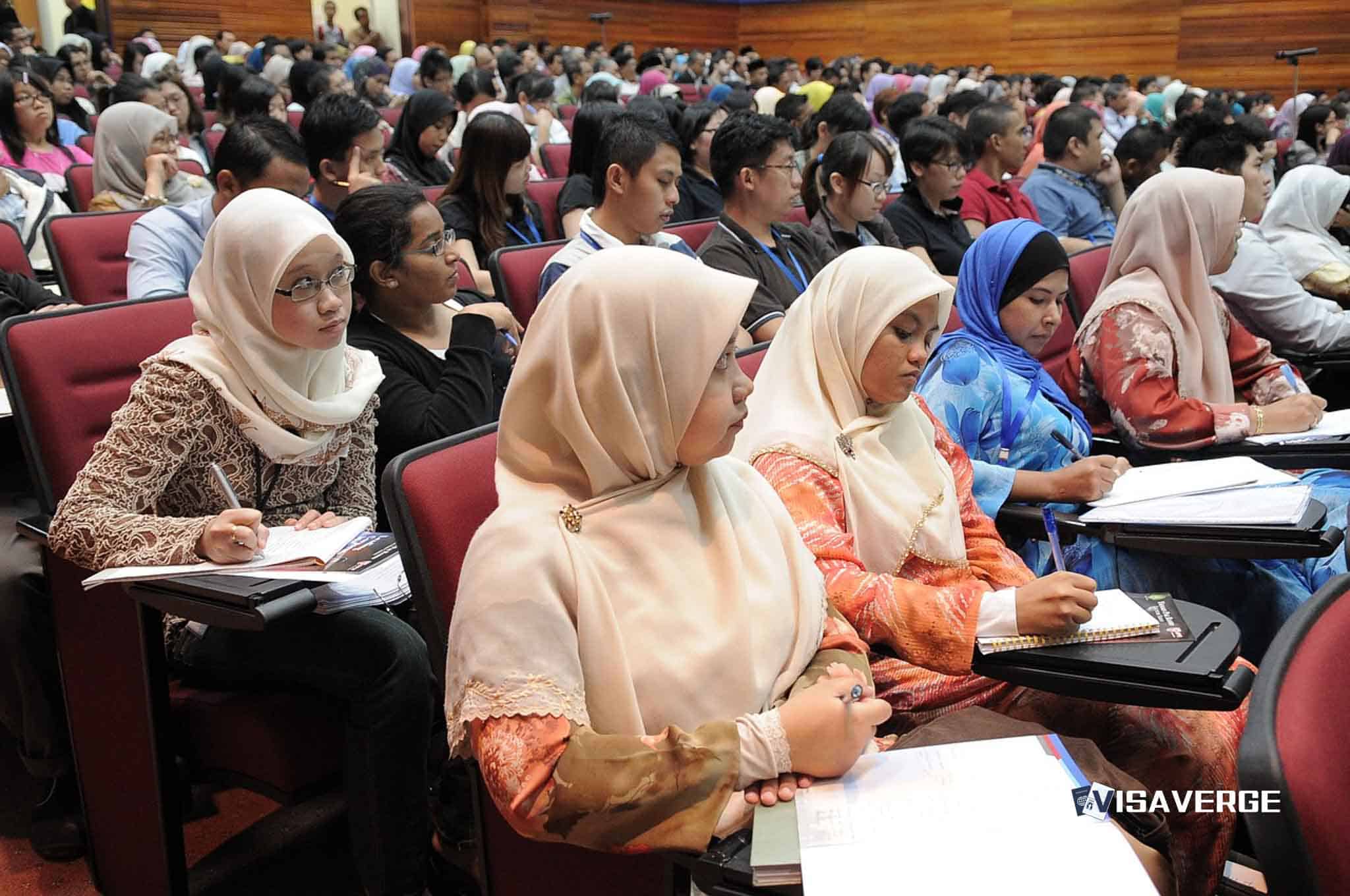Key Takeaways
• In April 2025, UCSB lost 12 F-1 visas without notice due to minor issues like unpaid tickets.
• Over 300 F-1 visas were revoked nationwide since January 2025 amid stricter Trump-era immigration policies.
• Lawsuits led to court orders reinstating 11 of 12 visas at UCSB, highlighting due process concerns.
In April 2025, the University of California, Santa Barbara (UCSB) found itself at the center of a national story that shocked many people who care about student visas and the rights of international students. At least twelve members of the UCSB international student community—seven who were still students and five who had just graduated—lost their F-1 visas without any warning. These F-1 visa revocations were not limited to UCSB. Across the United States 🇺🇸, similar sudden actions created fear and confusion for hundreds of international students.
What made this episode so troubling was how it happened: there was almost no notice, no clear explanation, and little information from the federal government about what led to these decisions.

A Sudden and Troubling Shake-Up
Imagine finding out one morning that your right to stay in the United States has vanished overnight. That’s exactly what happened to these students. Most had no idea their F-1 visa was in trouble. They only discovered the problem after being locked out of vital immigration systems or, in some cases, getting brief and confusing updates from UCSB officials. Some of the affected were not even typical full-time students. They were recent graduates, living and working legally in the United States under a program called Optional Practical Training (OPT). OPT lets international students work for up to a year after finishing their degree.
For those relying on F-1 visas and OPT to build their futures, this was a frightening development. Suddenly, their ability to study, work, and plan their next steps was taken away.
No Clear Answers from Federal Officials
After the news first broke, both UCSB leaders and those at the entire University of California system tried to get answers. They wanted to know why these students had been singled out. Federal agencies like the State Department and the Department of Homeland Security didn’t offer much. Instead, government databases only cited “violations of the terms of the individuals’ visa programs,” a vague phrase that means many things but says very little about each specific student’s case.
Even after repeated requests, university leaders were not given more details, evidence, or any kind of warning ahead of time. Without clear communication, many affected students felt abandoned.
When people hear about a visa being revoked, some assume it must be for something serious, like a crime. But, according to the facts brought out by UCSB staff and several news outlets, almost all of the F-1 visa revocations at UCSB were because of very minor problems. For example, some cases were linked to things like unpaid traffic tickets or ongoing background checks. Only a tiny number—just one or two at UCSB—might have had anything to do with campus activism or protests, such as those related to Gaza. This is important because some believed that student protest activity, especially around sensitive topics, was the main reason for the crackdown. But this was simply not true for most of those affected at UCSB.
A National Crackdown and Its Broader Impact
This was not just a UCSB problem. Starting in January 2025, the Trump administration increased its focus on student visas and other immigration matters. More than 300 F-1 student visas were revoked since January 2025 nationwide, with hundreds more under review. Immigration and Customs Enforcement (ICE) also ended over 4,700 records in SEVIS, the official system for tracking international students and exchange visitors, between January 20 and late April. In many cases, students lost their visa status even when they had not been convicted of any crime—or even charged.
This wave of F-1 visa revocations caused confusion everywhere:
- Students never received advance notice or a chance to respond.
- Many only learned about the action after they lost access to government portals or because their university could no longer find their records.
- Faculty and school officials had no way to help, because they too were left in the dark.
Since the government was not giving full answers, those affected and their supporters wondered whether the actions were tied to recent campus protests or a broader effort to discourage international students from coming to the United States.
But as the situation became clearer, it seemed that the crackdown was actually less targeted than people first thought. Students lost their F-1 visas for many reasons, most of them ordinary or minor—like missing paperwork or a traffic violation that hadn’t been cleared up yet—not because of protests or national origin. As reported by VisaVerge.com, most experts agree there was no real pattern to who was being singled out, at UCSB or across the country.
Legal Backlash and Fights for Student Rights
The sudden and unexplained F-1 visa revocations did not go unchallenged. Lawsuits were quickly filed by students and universities in several states. Courts in certain areas listened to these complaints and, in some cases, issued emergency restraining orders. Judges told the government that they had to restore visa status for some students, at least temporarily, because they had not given proper notice or followed established legal rules, known as due process.
At the University of California level, the university hired outside lawyers to help affected international students. This support mattered, because it meant students had access to advice and were able to push back on these sudden changes.
As pressure increased—through legal means and public protests—the Department of Justice and other agencies began to reverse course. In the case of UCSB, at least eleven out of twelve F-1 visas that had been revoked were later reinstated, according to updates from UCSB officials and local news sources. For the students affected, this was a huge relief. Still, one student’s status was not fully resolved by late April 2025, showing that the process can be slow and uncertain.
How Does This Affect International Students and Campuses?
The wave of F-1 visa revocations sent shockwaves through UCSB and university communities across the country. International students are a big part of American higher education. They add to the diversity of campuses, bring new ideas, and often do research that helps both the United States and their home countries. But when their status is threatened without warning, it causes serious harm—not just to the students themselves, but to the entire academic community.
For those at UCSB, the effects were personal and immediate:
- Seven current students suddenly had to stop studying or prepare to leave the country.
- Five recent graduates working under OPT saw their jobs—and sometimes their ability to stay in the United States—vanish overnight.
- Staff in the international student office struggled to support those affected and answer questions from worried families.
- Classmates and professors who depended on them for research or group projects had to adjust suddenly.
Nationally, the impact was similar. Students at other universities faced the same sudden loss of status and struggled to sort out what they could do next. Many wondered if they could trust the student visa system at all.
Why Are These Actions So Worrying?
At the heart of the story is a basic question about fairness. Under long-standing U.S. law, people affected by official actions—like having a visa revoked—are usually given a chance to respond or clear up any problem. This idea, known as “due process,” is supposed to protect everyone from arbitrary or unfair decisions.
But in these recent F-1 visa cases, students did not get that chance:
- There was no advance warning or chance to explain or fix a small mistake before their visas were canceled.
- Some did not even know there was a problem until they were already in trouble with their status or had lost their job.
- Many students had no record of any crime, only minor infractions or open cases that had never led to charges.
As a result, students and their supporters argued that their rights were violated. Legal experts pointed to the need for a more transparent process, saying that sudden actions like this damage trust in the system and hurt the country’s reputation as a welcome place for smart, talented students from all over the world.
Table: The Major Facts About the UCSB F-1 Visa Revocations
To better understand what happened at UCSB, here’s a quick look at the main details:
- Total students and recent graduates affected: 12 (7 current international students, 5 recent graduates on OPT)
- Main reasons given for revocations: “Visa program violations”—usually minor issues like unresolved traffic tickets or incomplete background checks
- Any advance notice? No—students found out only after the fact
- Connection to protests? Only one or two cases linked to campus activism; most had nothing to do with protests
- University’s legal response: Lawsuits and emergency court orders; use of outside lawyers to support students
- Status as of late April 2025: 11 out of 12 visas reinstated; one case still unresolved
What Should International Students and Universities Do Now?
While most of the F-1 visa revocations at UCSB have been overturned, the incident has made clear that all international students, their universities, and those who support them must pay close attention to legal requirements. Keeping all records up to date, responding to any government requests, and making sure to settle even minor legal problems—like traffic tickets—can reduce risk.
At the same time, schools are pushing the federal government to improve how it communicates with universities and students and to give people a fair chance when problems arise. By working more closely together, universities hope to prevent another crisis.
For anyone wanting to learn more about the rules for F-1 visas and OPT, it’s a good idea to check the U.S. Department of State’s Bureau of Consular Affairs F-1 visa page, which has basic and updated information.
The Ongoing Struggle for Fairness and Trust
The F-1 visa revocations at UCSB in 2025 were not just about one school or a few unlucky students. They tell a bigger story about how changes in government policies can affect real lives, sometimes in sudden and painful ways. For international students, especially those far from home, these events were a reminder that visa status can change quickly, with little warning, even when you follow the rules.
The legal fight and public pressure that helped restore most of the revoked visas at UCSB also show that wrongs can sometimes be corrected, but the process can be long and stressful. Many students, not only at UCSB but across the nation, will keep living with uncertainty as similar rules and sudden actions are still possible.
In the end, everyone—universities, students, and the federal government—must work together to make sure the system is fair, clear, and supportive of those who want to learn and contribute. As the world watches how the United States 🇺🇸 treats its international student population, the way cases like these are handled shapes the country’s reputation and its ability to draw the best minds from around the globe.
If you are an international student at UCSB or another university, it’s important to stay connected with your international student office and follow all rules carefully. Keep records, deal with any minor infractions quickly, and ask for help if you ever face uncertainty about your visa status.
For up-to-date information, you can always visit VisaVerge.com or check official government resources online. Knowing your rights and options is the first step in protecting your future in the United States.
Learn Today
F-1 Visa → A student visa allowing international students to study full-time in the United States.
Optional Practical Training (OPT) → A work authorization allowing F-1 students to gain experience up to one year after graduation.
SEVIS → The Student and Exchange Visitor Information System used to track international students’ immigration status.
Due Process → Legal requirement that individuals must receive fair notice and an opportunity to be heard before government action.
Visa Revocation → The official cancellation of a visa, removing a person’s legal permission to stay in the country.
This Article in a Nutshell
In April 2025, UCSB faced sudden F-1 visa revocations affecting students and graduates. Most were due to minor infractions. Legal action reversed most cases, exposing flaws in immigration communication and procedure. The crisis underscores the precarious status of international students in the US and the need for fair treatment and transparency.
— By VisaVerge.com
Read more:
• Visa revocations put Indian students at risk of defaulting on loans
• Visa revocations rise for international students in the US
• Indian students hit hardest by US visa revocations, immigration lawyers say
• International Students Face Sudden Visa Revocations in Mankato
• Kuwait citizenship revocations leave tens of thousands stateless













